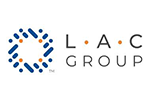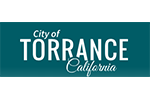Advisory Board
LBCC Community Partners & Training Opportunities
In order to improve the curriculum and design for the credit-bearing and noncredit certificates, the Long Beach City College Library Technician faculty host an annual meeting with industry experts, information professionals, and college, public, and school librarians, in an Advisory Committee. The Advisory Committee is charged to help review the program’s curriculum, to engage with faculty to better understand how students are served, and to make recommendations for improvement.
The Advisory Board is composed of individuals employed in and leading the information and library services throughout the Long Beach/Los Angeles region. Members meet annually on the last Friday of May in order to discuss the trajectory of LBCC’s Library Technician curriculum, services available to students that increase outreach and retention, and career readiness. Members offer industry-relevant insight and contribute to a healthy, adaptive curriculum that meets the needs of employers and leaders in the library and information services.
Advisory Board Recommendations & Highlights
Culture & Hierarchy
At the 2018 and 2019 Advisory Committee meetings, participants have suggested that the Library Technician program help prepare students for navigating the cultures of various information settings. Of note, members have suggested that the students be made aware that various types of libraries have differing cultures, and that a hierarchy in roles and responsibilities (and expectations) can exist.
OER Textbooks
At the 2018, 2019 and 2020 Advisory Board meetings the group and faculty expressed a hope in creating free, Open Educational Resource textbooks. Recently, LBCC earned a grant through the statewide senate to collaborate with Pasadena and Santa Ana faculty to draft an original OER Textbook for a course on the Foundations of Library Services, a course underpinning Library Technician programs at ten community colleges in the state. The textbook will be used by roughly more than 100 students who enroll in the Foundations courses each year. Implementing this original OER textbook will save students an estimated $5,700 per year.







